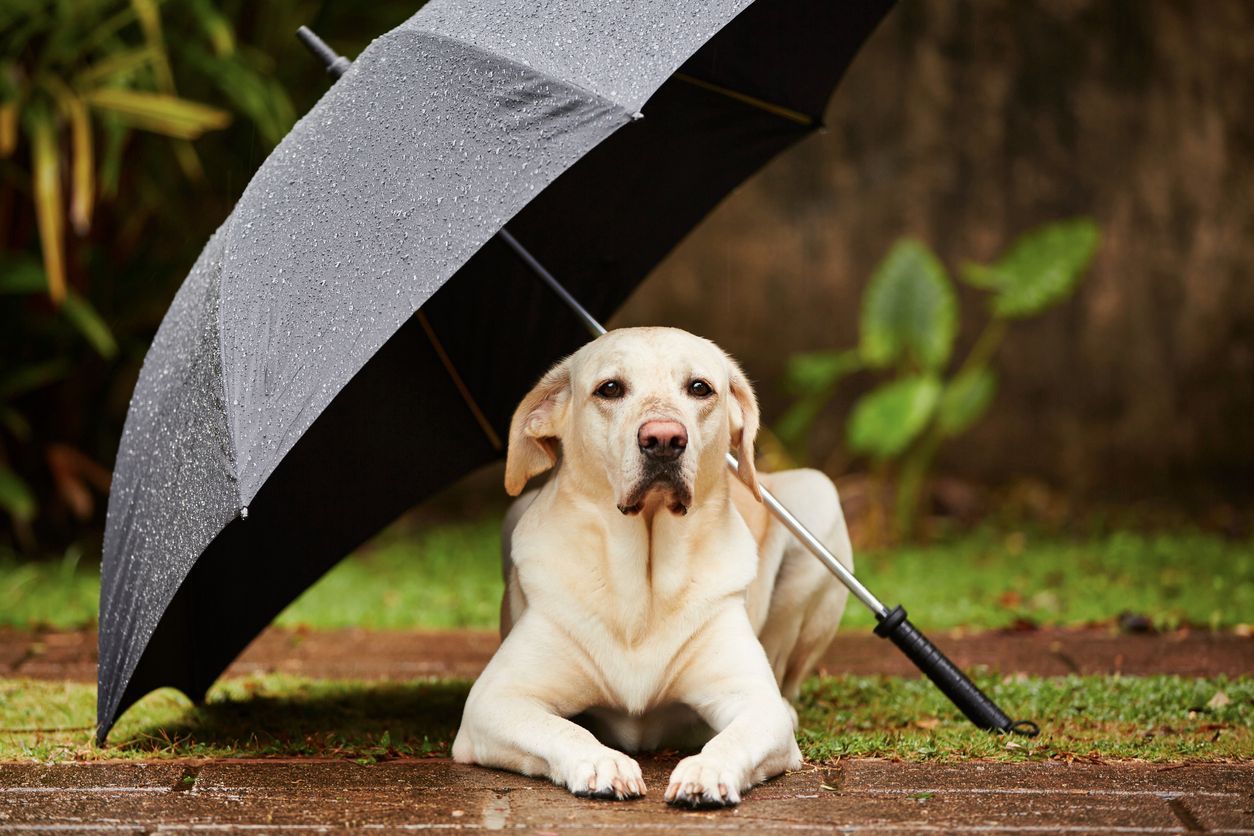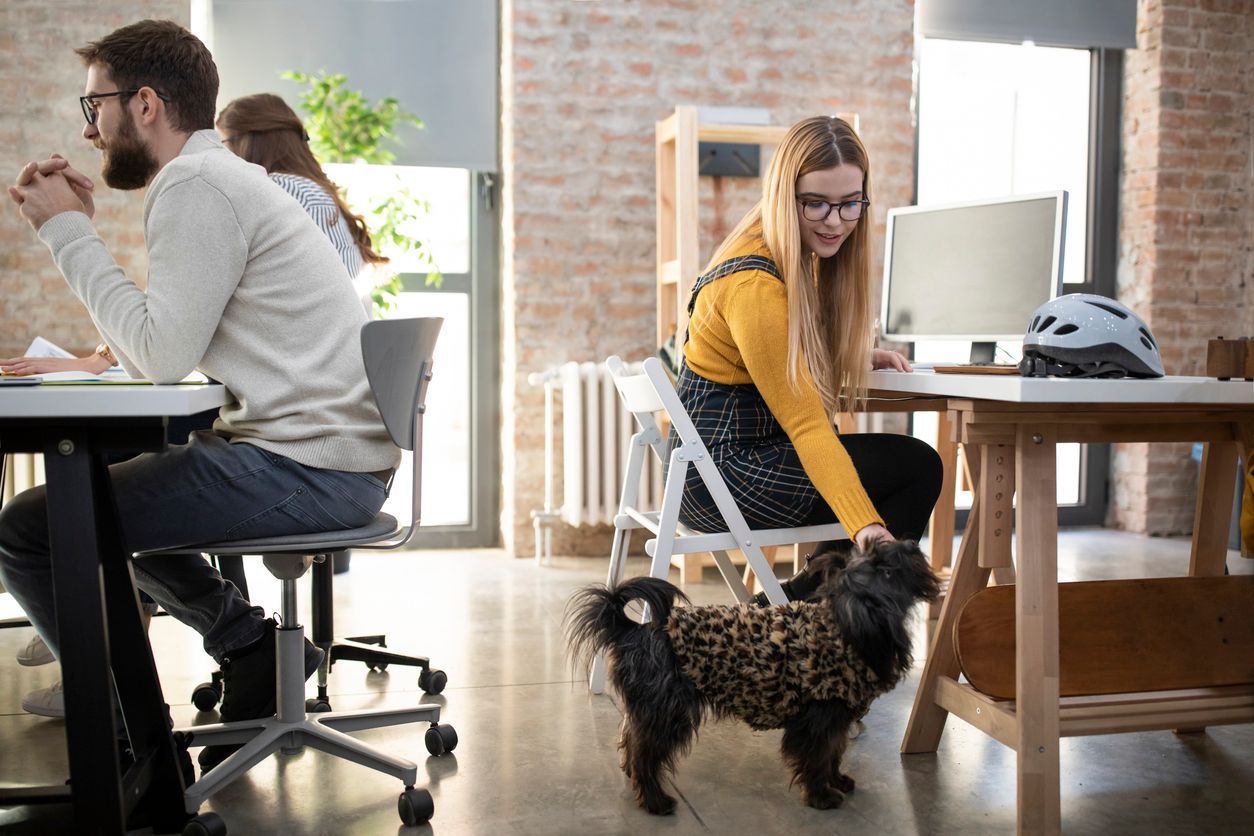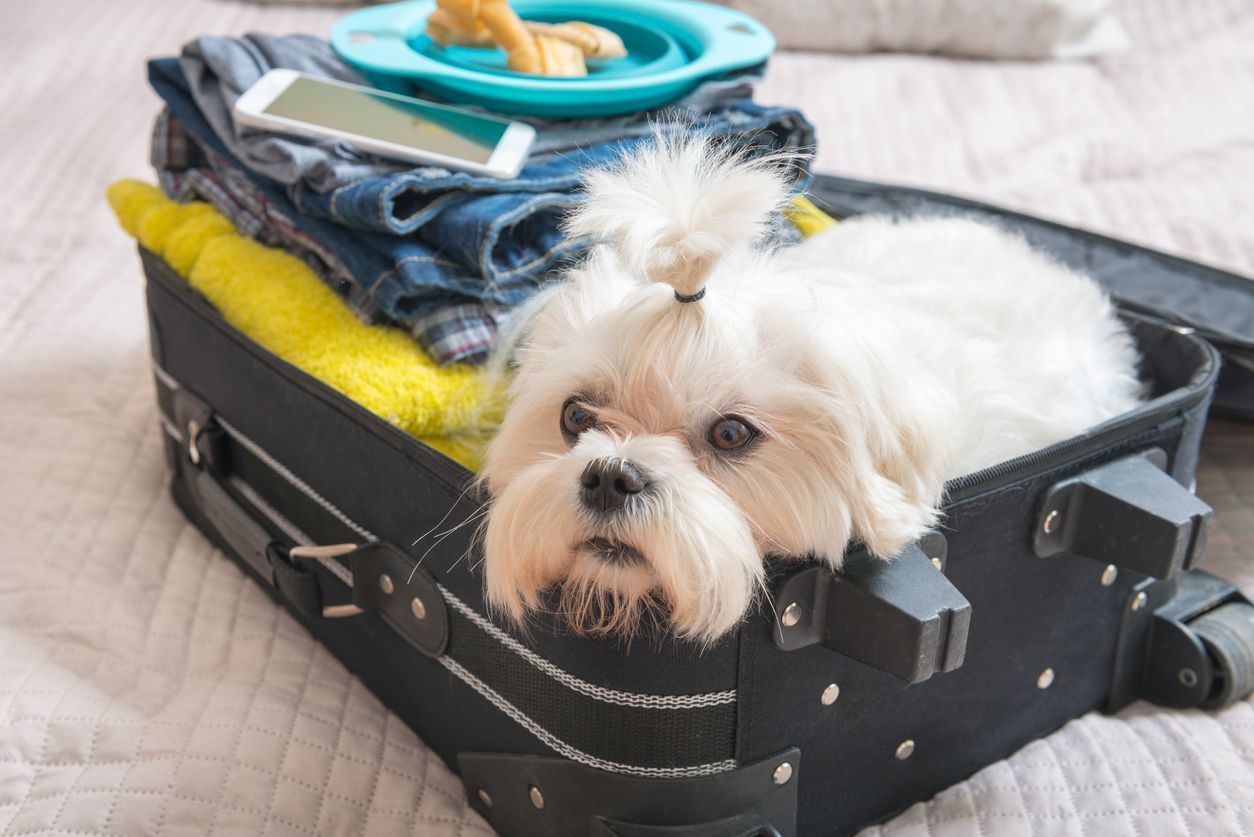Pee-free zone: how to stop your dog from peeing in the house
“No…no! NO!!”
This surely sounds familiar to anyone who’s tried to housetrain a dog. It can be stressful. You may find yourself pulling your hair out, asking—or even shouting!—“Why is my dog peeing everywhere?”
Adopting a pooch as a Christmas present? They’re a gift that will keep on giving, until they learn better. Getting a dog to stop peeing in the house can be frustrating. In fact, it can be a full-time job. You need to keep a sharp eye on Fido, always on the lookout for signs and triggers.
So how can you stop your dog from peeing in the house? Let’s go over why dogs pee in the house and what to do to stop them.
Why do dogs pee in the house?
Remember, dogs aren’t like birds: they pee consciously. It doesn’t just run out of them unless there’s something medically wrong or they’ve been forced to hold it in for too long.
That means that there are reasons why a dog pees in the house. They’re making a decision, or something stressful is overriding their ability to make that decision. Let’s go over some common reasons why you’re finding soggy golden surprises on your nice, new hardwood floors.
Puppy accidents
Tiny puppies have tiny puppy bladders. Which means they can’t hold their urine that long. They may also have no real exposure to household living before you bring them home. Shelters or breeders may have them living in perfectly fine situations that simply don’t resemble your home environment enough for a puppy to transfer their peeing-location knowledge from one to the other.
So be sure to start house-training on day one. If you’re consistent, your dog will become a whiz at not peeing in the house.
Marking territory
Does dog marking smell like urine? It sure does. Dogs mark their territory by urinating on it. Male dogs do this most flamboyantly. But female dog urine marking is common, too. Dog urine marking is especially common in dogs who haven’t been spayed or neutered. It’s a hormonal urge. You’re bringing your dog home to share your life—to make a true home. They just don't know that it’s their home right away. They may mark it up to feel secure, like they’ve got a place in the family.
Stress
Dogs are emotionally perceptive and empathetic. They can even read you well enough to appear to get a punchline. But such a degree of emotional intuition means that dogs are also prone to stress, particularly under new conditions or upon being introduced to unfamiliar places. Moving, for instance, isn’t just stressful for you: Rover knows something’s going on with all the boxes, just not what. And they have to get used to a new apartment or house they didn't have a say in picking out.
Excitement
The flip side of stress is a sort of joyful excitement—a signature dog behavior that makes them so loveable. But excitement can cause inappropriate urination as well. If your dog is focused on something fun, they won’t necessarily be aware of their eliminatory needs. And when they absolutely have to go, well, they’re going to go.
Health concerns
Inappropriate urination isn’t always a behavioral issue. Sometimes it stems from a medical problem.
Inopportune peeing can be caused by:
- Aging
- A urinary tract infection (UTI)
- Kidney disease
- Incontinence of some other etiology
Changes in urine color throughout the day are to be expected, although dark urine in dogs may indicate injury or illness, and pink or red urine always warrants further investigation. It’s important to note that peeing in the house is often a behavioral issue, but it’s a good idea to rule out medical problems before moving forward with a housetraining program that isn’t working.
How to stop dogs from peeing in the house
It’s important to stop inappropriate urination—and not just because it’s gross. Housetraining is key to a dog understanding the master-pet relationship. This is your house, these are your rules, and while your dog has their place in your life, they can’t be allowed to control it.
So how to stop dogs from peeing in the house? Here are some ways you can stop all that indoor peeing.
Determine the trigger
Inappropriate urination may be due to anxiety, fear, surprise, opportunity, or other emotions or conditions. Watch your dog closely and observe patterns and triggers. Do they do it while playing? Do they whine while they do it? Are they more apt to do it around company?
Not all triggers can be eliminated, but those that can, should be. Those that cannot be eliminated can eventually be mitigated by a sort of exposure therapy.
Interrupt your dog
If you can’t stop Rex from peeing, at least stop them from peeing quite so much. When you catch your dog peeing in the house, interrupt them. Ideally, they’ll stop when you get their attention, and you can take them outside to finish.
Increase potty breaks
Dogs like to please. They like to work, and they function well with an established routine. So establishing a bathroom regimen is a major step on the road to fully house-training your dog.
If accidents keep happening in between breaks, increase breaks. If taking them out every two hours isn’t working, try doing it every hour. It may interrupt your life, too, but the work you put in early on pays off down the road.
Confine your dog when you’re not home
Confining your dog to a small space—a crate, not just a tiny room—can discourage them from urinating or defecating, at least while they’re in there. Dogs don’t like to be too close to their own waste, although some are willing to get fairly close.
Confinement is the cornerstone of crate training. If they aren’t productive during a scheduled break, confine them to a crate for a few minutes, then take them out again. Repeat until they learn. Once they learn, they can be left in a crate while you’re away from the house without fear that they’ll eliminate in it.
Spay or neuter your dog
Will neutering stop a dog from peeing in the house? It will at least help. There are many good reasons to spay or neuter your dog; one of these is that it facilitates house-training.
Neutering or spaying your dog decreases the presence of hormones that encourage marking—which not only “establishes” a dog’s own territory but functions as an invitation to breeding activity. Reducing marking is particularly desirable when it comes to male dogs who, by dint of their biology can (unlike female dogs) mark more than just the floor.
Eliminate urine odors
Urine stinks; you’ll clean it up for your own sake. But you’ll want to eliminate urine odors in order to house-train a dog, too.
Dogs like to pee in more or less the same place each time. And that place is, well, wherever it is they’ve peed before. So if they do it in a specific location in the house, that’s where they’ll try to go every time.
By eliminating that odor, you’re telling your dog that the routine they’ve tried to establish on their own is a no-go.
Don’t hit or yell
Dogs respond well to positive reinforcement. Not so much negative reinforcement.
A dog caught peeing in the house won’t necessarily connect hitting or yelling with an intent to discourage them from doing that specific thing. In fact, you’re more likely to just scare them, thus making them even more likely to eliminate in the house.
Remember, dogs are emotional animals. They’re smart, but if they perceive you as a threat rather than understand your anger is contingent on their behavior, they’ll just be afraid of you and less able to learn from you.
Get a professional opinion
If your dog continues peeing in the house despite a concerted effort at housetraining, or if they display unusual signs of pain, sluggishness, or confusion, get a professional opinion. Book an online virtual care appointment with Vetster to get qualified advice without even leaving the house. You can book 24/7 from your phone, tablet or computer, then determine the best solution for your dog’s peeing-in-the-house problem.



